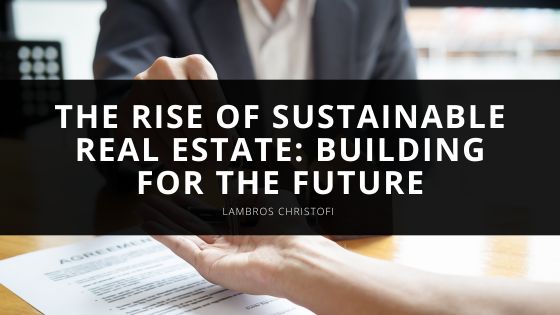The real estate industry is undergoing a transformation as sustainability becomes a top priority for developers, investors, and buyers alike. With climate change, energy efficiency concerns, and shifting consumer preferences, sustainable real estate is no longer optional—it’s the future.
Why Sustainability Matters in Real Estate
Real estate accounts for a significant portion of global energy use and carbon emissions. By adopting sustainable practices, the industry can play a major role in combating climate change while also reducing costs for property owners and tenants.
Key Trends in Sustainable Real Estate
- Green Building Certifications: Programs like LEED and BREEAM set standards for environmentally responsible building practices. 2. Energy Efficiency: From solar panels to smart thermostats, energy-efficient features are becoming standard. 3. Sustainable Materials: Developers are increasingly using recycled, renewable, and locally sourced materials. 4. Smart Technology Integration: Automated systems optimize lighting, heating, and water use, reducing waste.
Benefits of Sustainable Real Estate
- Cost Savings: Energy-efficient properties reduce utility bills.
- Higher Market Value: Sustainable buildings often attract higher rents and resale values.
- Tenant Attraction & Retention: Many tenants prioritize sustainability when choosing where to live or work.
- Regulatory Compliance: Governments worldwide are implementing stricter environmental standards.
Challenges to Adoption
While the benefits are clear, challenges remain, including higher upfront construction costs and the need for specialized expertise. However, long-term savings and market demand often outweigh these barriers.
Conclusion
Sustainable real estate is not just about going green—it’s about future-proofing investments and responding to growing environmental concerns. As awareness increases, sustainable development will become the norm, creating healthier spaces for people and the planet.
